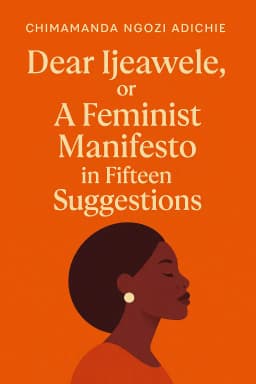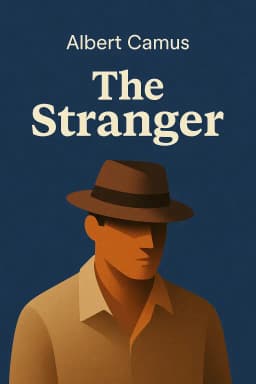
The Code of Civilization: A Founder's Guide to Ancient Wisdom
Golden Hook & Introduction
SECTION
Nova: Yue, you're on a mission to build a new spiritual civilization, to write a new 'code' for humanity. But what if the most powerful source code for that project isn't new at all? What if it was first written 2,500 years ago by philosophers trying to, as Luc Ferry puts it in his book 'A Brief History of Thought,' literally 'save their own skin' from the fear of death?
Yue: That’s a powerful way to frame it, Nova. I’ve always seen philosophy, especially the Socratic tradition, as a practical toolkit for life, not just abstract debate. The idea that it's fundamentally about salvation—about finding a way to live well in the face of our own mortality—resonates deeply with my own search for a refined mindset. It’s about building an inner architecture that can withstand life’s challenges.
Nova: Exactly! And Ferry’s book is this incredible journey through humanity's biggest attempts to build that architecture. He argues that philosophy isn't an academic game; it's a practical guide to living a better, freer life. So today, we're going to explore that. We'll dive deep into this from two powerful perspectives. First, we'll explore the ancient Greek idea of philosophy as a 'mental operating system' for resilience, focusing on the Stoics. Then, we'll jump forward two thousand years to discuss the great humanist revolution, where humanity took over as the programmer of its own moral code.
Yue: I love that. From accepting the program to writing the program. Let's dive in.
Deep Dive into Core Topic 1: The Stoic Operating System
SECTION
Nova: Alright, so let's start with that first 'operating system.' Ferry says the great philosophical schools of ancient Greece, like the Stoics, were all trying to answer one question: How do we conquer the fears that paralyze us and prevent us from living freely? The biggest fear, of course, being death.
Yue: The ultimate existential bug in the human program.
Nova: The ultimate bug! And the Stoics developed this incredibly elegant system to patch it. To understand it, you have to get inside their worldview. Imagine you're a Stoic, maybe a Roman Emperor like Marcus Aurelius writing in his tent at night. When you look at the stars, you don't see random chaos. You see a.
Yue: A kosmos... you mean like an ordered universe?
Nova: Precisely. But more than that. The Stoics saw the entire universe as a single, living, breathing organism. It was perfect, rational, and divine. Everything that happened within it—from a leaf falling from a tree, to a battle being won or lost, to your own birth and death—was a necessary and logical part of this beautiful, overarching order.
Yue: So there are no accidents. Everything has a purpose within the grand design.
Nova: Exactly. And this belief was the foundation for their three-part 'operating system.' First, there was: the work of contemplating and understanding this divine cosmic order. Second, there was: your moral duty was simply to be a good citizen of the cosmos, to align your will and your actions with its perfect logic. And third, the payoff, was or what Ferry calls 'salvation.'
Yue: And how did that 'salvation' work? How did it conquer the fear of death?
Nova: By reframing it completely. For a Stoic, death isn't a terrifying void. It's just a natural transformation. You are a small part of this vast, eternal cosmos. When you die, you aren't destroyed; you are simply reabsorbed into the whole. Marcus Aurelius put it beautifully, he said: "You came into this world as a part: you will vanish into the whole which gave you birth." Your individual drop of water returns to the divine ocean. So, there’s nothing to fear.
Yue: That's incredibly powerful. It’s a framework for acceptance.
Nova: It is. So, as a founder who builds complex, logical systems with code, does this idea of a perfectly ordered, rational 'kosmos' resonate with you? Is that a comforting thought, or does it feel a bit limiting?
Yue: It's fascinating because it mirrors the ideal of elegant code. The dream of any programmer is to write a system so perfect that it runs flawlessly, where every function has a purpose and there are no bugs—only, as you said, features we don't yet understand. In leadership, we often talk about 'trusting the process.' The Stoics took that to a cosmic level. It’s a mindset of profound trust.
Nova: A cosmic trust. I like that.
Yue: But it also raises a critical question for me, especially as an innovator. Where does creativity or 'disruption' fit in if the ultimate goal is to perfectly align with a pre-existing, perfect order? If the code is already perfect, the role of the human is just to execute it, not to write anything new. It seems to leave little room for the human spirit of invention that I believe is so central to our nature.
Nova: That is a brilliant question. You've just put your finger on the exact tension that simmered for centuries and eventually caused this entire philosophical operating system to crash.
Deep Dive into Core Topic 2: The Humanist Revolution in Meaning
SECTION
Nova: And that's the perfect segue, Yue. For nearly two thousand years, that Stoic idea of a harmonious cosmos was incredibly influential, later adapted by Christianity as well. But then, starting in the Renaissance and exploding in the Enlightenment, modern science began to systematically dismantle it. The 'kosmos' fell apart.
Yue: The universe was 'de-bugged,' and we found out it wasn't a perfect program after all.
Nova: Exactly! And Ferry points to a specific historical event that acted as a catalyst for this crisis of meaning: the Great Lisbon Earthquake of 1755. Imagine this: it's All Saints' Day, a major holy day. Lisbon is one of the richest, most beautiful, and most devout cities in Europe. Suddenly, a massive earthquake hits. The churches, filled with worshippers, collapse. A tsunami then sweeps in from the ocean, and fires rage for days. Tens of thousands of people die in the most horrific ways.
Yue: It's impossible to see a benevolent, divine order in that kind of tragedy.
Nova: Impossible. Thinkers across Europe, like Voltaire, were horrified. They asked, "How can this be part of a just, divine order? What good God would design this?" The old Stoic OS, the idea of a good and rational cosmos, crashed. The world no longer seemed like a harmonious garden, but a chaotic, indifferent, and often brutal machine.
Yue: So if meaning and morality can't be found 'out there' in the universe, where do we find it?
Nova: Well, this is the great 'upgrade' in human thought. Philosophers like Immanuel Kant came along and proposed a radical new idea. He argued that morality isn't 'out there' in the cosmos; it's 'in here,' inside human reason itself. We don't discover morality; we create it.
Yue: We become the programmers.
Nova: We become the programmers! Kant said a truly moral act isn't about aligning with nature or God's will. It's defined by two internal tests. First,: you must act for the good of others, not for your own selfish benefit. Your motive has to be pure. Second, and this is the big one,: the principle behind your action must be something you could wish to become a universal law for all people, at all times.
Yue: The Categorical Imperative. Act only according to that maxim whereby you can, at the same time, will that it should become a universal law.
Nova: You got it. So, your mission, Yue, is to create a 'new, universal concept that unites us as one humanity.' Kant's framework seems like a direct philosophical blueprint for that. As a leader building a global community with Codemao, how do you grapple with this idea of universality? How do you create rules or values that feel universal without just imposing one culture's perspective on everyone?
Yue: This is the central, and perhaps most difficult, question for any global platform or community builder today. Kant's ideal of universality is the North Star, but the implementation is incredibly complex. You can't just write a 'terms of service' in Silicon Valley and expect it to feel just and right in Nairobi or Shanghai. That's not universality; that's cultural imperialism.
Nova: So how do you approach it?
Yue: We try to operate on a higher level of abstraction. Instead of creating rigid, specific rules, we try to define universal 'meta-principles.' For example, a core principle might be 'empower creativity in every child' or 'foster safe and constructive collaboration.' These goals are disinterested—they are for the good of the user—and they are universal in their appeal. But they are expressed can and should be local and diverse. It's the difference between designing a rigid, finished application versus creating a flexible API.
Nova: An API for morality! That's a fantastic analogy. You provide the framework, the core functions, but you allow others to build on top of it in a way that's meaningful for them.
Yue: Exactly. We provide the building blocks of a positive civilization, but the final structure has to be co-created by the community itself. That, to me, is how you build a truly universal concept in the 21st century. It has to be participatory.
Synthesis & Takeaways
SECTION
Nova: I love that. So, in our short journey today through Ferry's book, we've gone from the Stoics, who found peace by accepting their role in a pre-written cosmic program, to the Humanists like Kant, who essentially handed us the keyboard and said, 'The world is yours to code.'
Yue: And what Ferry's book seems to suggest, and what I deeply believe, is that our task now is to be responsible programmers. We can't be naive. We have to use what the book calls an 'enlarged thought'—the ability to genuinely understand and respect the perspectives of others—as we write this new code for civilization. The goal isn't just functional code; it must be beautiful, ethical, and profoundly human-centric code.
Nova: A beautiful and powerful place to end. It brings the responsibility right back to us, to the choices we make every day. So, for everyone listening, and for you, Yue, I'll leave us with this final question to ponder: In a world without a pre-written cosmic script, what universal values are you choosing to write into the code of your life and your work?
Yue: A question worth dedicating a lifetime to answering. Thank you, Nova. This was enlightening.
Nova: Thank you, Yue. It was a privilege.









